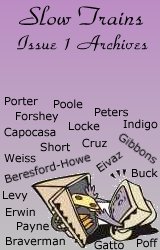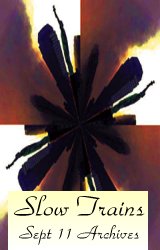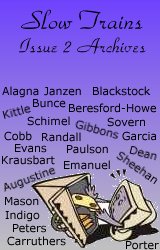Reviewed by Jeff Beresford-Howe
Timeless
a tribute to Hank Williams
If you don't know who Hank Williams is -- we're not talking about that redneck buffoon on Monday Night Football, but rather his live-hard-die-young Daddy -- then this is what you need to know: Williams is the white Robert Johnson. Like Johnson and acoustic blues, Williams is the man musicians think about when they think about why country music is important.
Williams wrote a few more tunes than Johnson, some of them not so good, but his best twenty or thirty songs are the core vocabulary of country, whether you're Shania Twain, Willie Nelson, Garth Brooks or BR5-49.
And that influence has crossed over into rock and the whole singer-songwriter thing, too. Bob Dylan thinks Williams is the fountainhead, which is good enough for me, and Don Was and the Grateful Dead, among others, have recorded Williams tunes.
When producers Luke Lewis, Mary Martin and Bonnie Garner were putting together this tribute album, they apparently had to lock themselves into a bomb shelter to keep from making a gazillion-CD set with willing rock and alt.country headliners doing their favorite Williams numbers. The people the producers settled on, and their performances, are simply wonderful: solid and interesting from stem to stern.
Appropriately, the album opens with Bob Dylan doing "I Can't Get You Off Of My Mind." Recorded with most of the same band (at about the same time) as Dylan's fabulous Love and Theft, this is a good-time acoustic romp with Dylan singing with the same direct, clear passion that makes his current concert performances so damned good.
Sheryl Crow follows with "Long Gone Lonesome Blues," accompanied by some great slide from Peter Stroud and a lack of bombast that she can't seem to consistently find on her own albums.
Keb' Mo' does one of Williams' most famous tunes, "I'm So Lonesome I Could Cry." It's as good a performance as he's ever given, the tune fits him like a glove, and he's helped with some profoundly empathetic steel work by Bill Frisell bandmate Greg Liesz.
The producers gave Beck, of all people, another Williams standard, "Your Cheatin' Heart." He nails it. (As he does on the recent Mississippi John Hurt tribute album; there just might be some cash in this sincerity thing after all.) Lyle Workman continues the impressively weepy run of guitar work on the album.
Will someone please find out what in the hell is wrong with Mark Knopfler and fix it? After a lousy album, his performance on Timeless is one of the two wrong notes. His harmonies with Emmylou Harris are all wrong. (How bad is that? If you can't harmonize with Emmylou, your union card should be revoked.) Knopfler's band gives a by-the-numbers, obviously unrehearsed and unenlightening performance.
Tom Petty is the other wrong note on the album. His vocal performance is mannered, and for some reason he eschewed the Heartbreakers and recorded most of the instruments himself, which was not a good idea.
Mick Jagger is busy with Brazilian supermodels, VH-1 and his own misbegotten shots at relevance, so Keith Richards is left to his own devices on "You Win Again," which he does in tune (go figure!), on time(!) and with nice interplay between his own shadowy echo of a guitar and John Pirruccello on steel guitar. It's a very nice, slow waltz of an arrangement. There's an added piquance: Richards sounds a lot like the late Rick Danko on this track, and works with Danko collaborators Rob Fraboni and Blondie Chaplin.
Emmylou uses Knopfler's band for her track, "Alone and Forsaken," which sounds like it was written for her, and which she sings with heartbreaking eloquence:
Oh, where has she gone to, oh where can she be
She may have forsaken some other like me
She promised to honor, to love and obey
Each vow was a plaything that she threw away
-- "Alone and Forsaken," Hank Williams
If you peek through the tears, you'll notice that all she asks Knopfler's band to do is keep up, and they do.
"Hank III," as Hank Williams' grandson calls himself professionally, is almost spooky in the way he recalls his grandfather without imitating him and without losing his own voice. He does "I'm a Long Gone Daddy" as the quintessential Williams romp: achingly sad but you can dance to it.
Ryan Adams -- former lead singer of Whiskeytown and now (what a coincidence!) recording for Lost Highway -- takes advantage of the one obvious marketing ploy on this record and yodels successfully through "Lovesick Blues."
Lucinda Williams (no relation) picks a song that seems like a natural for her, "Cold Cold Heart," and she does a creditable job, but you have to say that she doesn't quite find the hurt in the song in the way you'd hope she would.
The album concludes with a long Johnny Cash spoken word version of the maudlin "I Dreamed About Mama Last Night." The good news -- very good news -- is that Cash sounds more in command than he has on his other recent, very weak attempts at recording, and that he has a great band playing in the background, including the great Randy Scruggs on guitar. The bad news is that the song is still unbelievably stupid, whether Hank Williams recorded it or not. (It's one of two tunes on the album Williams didn't actually write.)
Lovers Rock
Sade
A few years ago, my stereo was repossessed by karma (as a friend of mine put it; I prefer the same term the police used, which is "stolen") and when I replaced it, I never got around to getting a tuner. I don't own a car, either, so my exposure to music on radio is, at this point, virtually nil.
Which is just fine. I mean, do you listen to the radio these days? Reagan-era FCC reforms allowed a few conglomerates to buy virtually every station in the country and they've turned all the FM stations into splintered versions of bad old AM. The public stations, the ones that aren't wracked by infighting, bear the same relation to music that Bush does to leadership, i.e., a sadly inadequate simulcrum. Jazz stations have disappeared. College stations are dominated by self-important music industry wannabes and Wynton Marsalis was right about the rap-oriented ones: they are nothing noteworthy except as a symptom of the degradation of black culture.
But I do miss some things about FM, none more than Sade. The Queen of the Quiet Storm: for a long while, you couldn't go to a wedding, get in an elevator, spin the radio dial or go into any public space without hearing "Smooth Operator" or "The Sweetest Taboo." She combined the production sensibility of Steely Dan, Bob Marley's attention to the groove, the womanliness of Carole King, the romance of Fred Astaire, the occasional political-is-personal note a la Tracy Chapman and the internationalist attitude of a woman who spent plenty of time in Africa, Europe and the United States. Plus, she was sexy as all hell in an intelligent, grown-up way, and not a little mysterious.
The mystery was enhanced by her slow work pace: five albums in seventeen years. She makes Lucinda Williams look like David Murray.
Sade's newest album, Lovers Rock -- the title is a nod to the reggae world -- has all the gloss of her earlier work. She still sounds like a Vogue model looks. She still longs for her lovers in track after track, but this time out, her lovers, rather than gone elsewhere, coast to coast, LA to Chicago, are here and now. Most of the songs -- except for the occasional, "hey, how the fuck could you do that?" moment, as in "Every Word," and how would we know it's real if there wasn't one of those? -- are a gorgeous whisper in a quiescent lover's ear:
I am in the wilderness
You are in the music in the man's car next to me
Somewhere in my sadness
I know I won't fall apart completely
And in all this
And in all my life
You are the lovers rock...
-- "Lovers Rock," Sade Adu, Stuart Mattheman, Andrew Hale, Paul Denman
The songs are a little less radio friendly, I suppose, but they're all exquisitely crafted pieces. Her collaborators, in particular Hale and Mattheman doing the beat programming, of which this album is an intensely tasteful exemplar, and Mattheman's fantastically sensitive guitar work, are just about perfect every time out. Denman's bass is everything you could hope for, almost McCartneyesque in it's melodic sensuality.
The best instrument, of course, is Sade's voice. How anyone could be so ethereal, and yet so sexy, precise, musical and grounded, is beyond my ability to describe.
Songs in Red and Gray
Suzanne Vega
Blood on the Tracks is, famously, Bob Dylan's divorce album. (Though no one ever adds: if that's so, he must have gotten divorced because he was fucking around all the time, given the number of hit-and-run love songs on it.)
Suzanne Vega just got the Big D herself, leaving or being left by producer Mitchell Froom, who has done amazing work with her and Los Lobos, among others. There's no question that this is her divorce album:
If I were a weapon
You said I'd be a gun
Lethal at close range I guess
With silencer and stun
But I feel more like a needle
Always pulling on the thread
Always making the same point again
And wondering if you just heard what I
Just said
-- "If I Were a Weapon," Suzanne Vega








